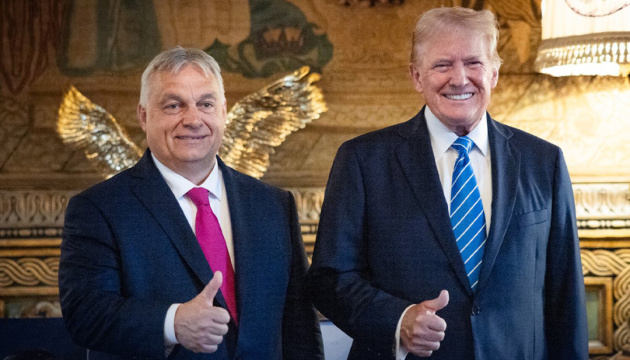Orban prepares to meet with Trump: will Hungary be able to escape Moscow’s energy trap?
27 October 15:58
Hungarian Prime Minister Viktor Orban plans to meet with U.S. President Donald Trump next week to discuss the effects of U.S. sanctions on Russian oil. This was announced by Foreign Minister Péter Szijjártó, "Komersant Ukrainian" reports citing Bloomberg.
The meeting will take place against the backdrop of growing pressure on Budapest – both from Washington and Brussels – because of its dependence on Russian energy resources.
What is known about Hungary and Russian oil
After the start of Russia’s full-scale invasion of Ukraine in 2022, most EU countries tried to reduce oil and gas imports from Russia. But Hungary took a different path – it increased its purchases of Russian energy resources.
Dependence on Moscow has become a strategic weakness: the landlocked country relies on Russian oil supplied by the Druzhba pipeline.
Despite EU calls to diversify its energy supply, the Orban government claims that there are no alternatives.
New US sanctions as a blow to energy security
Last week, the United States imposed sanctions on Russia’s largest oil companies , Rosneft and Gazprom Neft, in an effort to increase economic pressure on the Kremlin.
The EU, in turn, has banned any transactions with these companies and plans to completely stop importing liquefied natural gas (LNG) from Russia by 2027.
For Hungary, these decisions could have painful consequences, as they jeopardize the supply of fuel on which the country’s economy depends.
Washington’s reaction
American diplomats are skeptical of Budapest’s arguments.
US Ambassador to NATO Matthew Whitaker said in a commentary to Fox News:
“Hungary has to do some serious planning. We stand ready to help it reduce its dependence on Russian oil and gas.”
According to him, even a geographically “closed” country can find a solution if it develops infrastructure and cooperates with neighboring countries.
What Orban says
Prime Minister Orban responded by saying that protecting energy stability is a top priority. He continues consultations with the management of the Hungarian company MOL Nyrt. which still receives Russian oil thanks to a temporary exemption from EU sanctions.
Despite proposals to use the Croatian oil pipeline as an alternative, Orban doubts its economic feasibility.
Croatia, in turn, assures that it has sufficient capacity to supply oil to both Hungary and Slovakia.
The upcoming meeting between Orban and Trump has significance beyond energy.
It reflects a complex geopolitical game in which Budapest is trying to maintain a balance between Moscow, Washington, and Brussels.
For Orban, it is a chance to gain support from Trump, his longtime political ally. For the United States, it is an opportunity to put pressure on Hungary over the issue of Russian oil.
The outcome of the negotiations may affect not only Hungary’s energy strategy, but also the internal unity of the EU regarding sanctions policy against Russia.









